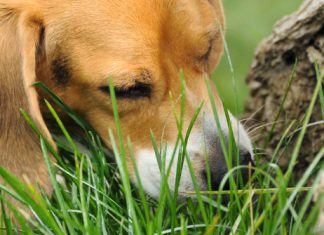Welcoming a new puppy into your home is an exciting journey filled with playful moments and heartwarming cuddles. As you embark on this adventure, ensuring your furry friend’s health and happiness is likely at the top of your priority list. One of the key aspects of your puppy’s overall well-being is maintaining healthy skin. Just like us, puppies can experience a variety of skin issues, from dryness to allergies, which can affect their comfort and vitality. In this article, we’ll guide you through essential tips and practices to keep your puppy’s skin in top condition throughout the year. Whether you’re a first-time puppy parent or an experienced dog owner, these insights will help you nurture your pet’s skin health with love and care, ensuring that their coat remains shiny and their spirits high.
Understanding Your Puppys Skin Needs
Ensuring your puppy’s skin stays healthy is a crucial part of their overall well-being. Puppies have sensitive skin that requires special care to prevent issues such as dryness, irritation, or infections. Understanding the unique needs of your puppy’s skin will help you tailor a care routine that keeps them comfortable and happy.
- Regular Bathing: Use a gentle, puppy-specific shampoo to cleanse their skin without stripping natural oils. Avoid over-bathing, as it can lead to dryness.
- Moisturizing: Apply a vet-approved moisturizer or skin conditioner after baths to maintain hydration.
- Balanced Diet: Ensure your puppy’s diet includes omega fatty acids, which are vital for healthy skin and coat.
- Parasite Prevention: Keep your puppy protected from fleas and ticks with regular treatments recommended by your vet.
By following these steps, you can help your puppy maintain a healthy, shiny coat and avoid common skin problems. Remember, a happy puppy starts with healthy skin!
Nourishing Your Puppys Skin with the Right Diet
Ensuring your puppy’s skin remains vibrant and healthy starts with the right diet. Nutrition plays a crucial role in maintaining a glossy coat and supple skin. Prioritize foods rich in omega-3 and omega-6 fatty acids, as these essential nutrients help to reduce inflammation and promote skin health. Look for puppy foods that list ingredients such as salmon, flaxseed, or fish oil. These are excellent sources of the fatty acids your furry friend needs.
- High-quality proteins: Proteins like chicken, lamb, and beef provide essential amino acids that are vital for skin repair and growth.
- Vitamins and minerals: Ensure the diet includes vitamins A, E, and B-complex, as well as zinc and copper, to support skin elasticity and repair.
- Antioxidants: Ingredients like blueberries, spinach, and carrots are rich in antioxidants, helping to combat free radicals and maintain skin integrity.
Remember, hydration is equally important. Ensure your puppy has access to fresh water at all times to keep their skin hydrated from the inside out. With a balanced diet and adequate water intake, your puppy’s skin will be well-equipped to handle any seasonal changes throughout the year.

Creating a Gentle Grooming Routine
Developing a nurturing grooming routine is key to maintaining your puppy’s skin health. Start by incorporating regular brushing sessions. Not only does brushing remove dirt and loose fur, but it also helps distribute natural oils across their coat, keeping their skin moisturized. Choose a brush that suits your puppy’s fur type to avoid irritation. For short-haired breeds, a soft-bristle brush works wonders, while longer-haired pups benefit from a slicker brush to untangle knots.
- Bathing: Limit baths to once a month using a gentle puppy shampoo to prevent stripping essential oils.
- Ear Cleaning: Use a vet-recommended ear cleaner weekly to prevent wax buildup and infections.
- Nail Trimming: Keep nails short with a regular trim, ensuring they don’t cause discomfort or alter your puppy’s gait.
- Paw Care: Inspect and clean their paws after outdoor adventures, checking for debris and ensuring the pads remain soft.
Remember, patience and positive reinforcement during grooming will help your puppy associate these activities with comfort and care, making the process smoother for both of you.

Spotting and Addressing Common Skin Issues
Our furry friends often experience skin issues that can range from mild irritations to more serious conditions. Recognizing these common skin problems early can make a world of difference in your puppy’s comfort and health. Here are some signs to watch for and ways to address them:
- Dry, flaky skin: This can often be a result of low humidity or dietary issues. Consider using a humidifier in your home and ensuring your puppy’s diet is rich in omega-3 fatty acids.
- Redness or rash: Allergies are a common culprit. Try to identify any new environmental factors or foods that might be causing the reaction. Consulting with your vet for allergy testing can be beneficial.
- Excessive scratching or licking: This behavior might indicate the presence of parasites like fleas or mites. Regular grooming and the use of vet-recommended anti-parasitic treatments can help keep these pests at bay.
Maintaining a regular grooming routine is crucial. Brushing your puppy’s coat not only helps remove dirt and loose fur but also promotes good circulation and distributes natural oils evenly across their skin. If issues persist, a visit to the veterinarian can help diagnose and treat underlying conditions effectively.
















